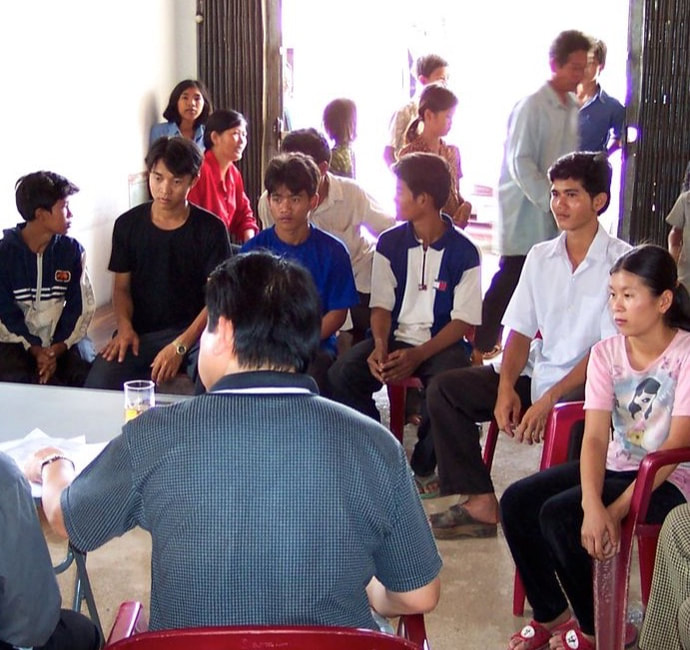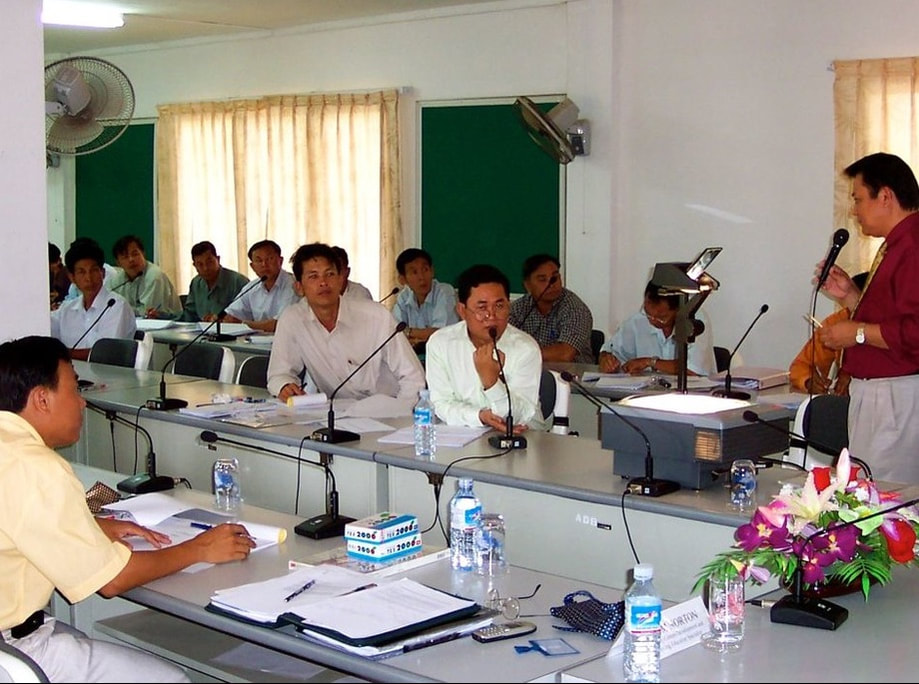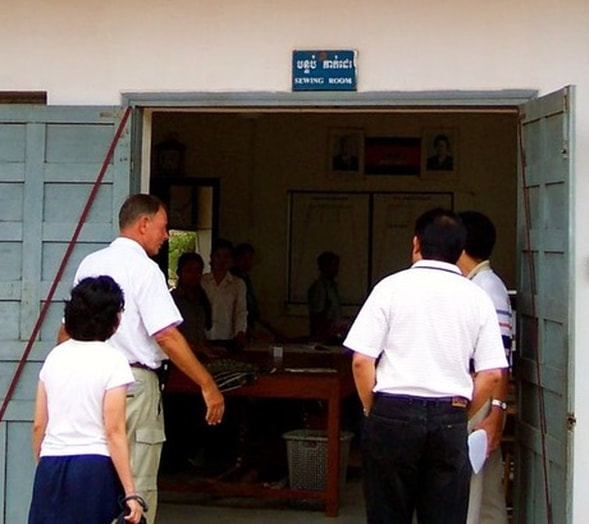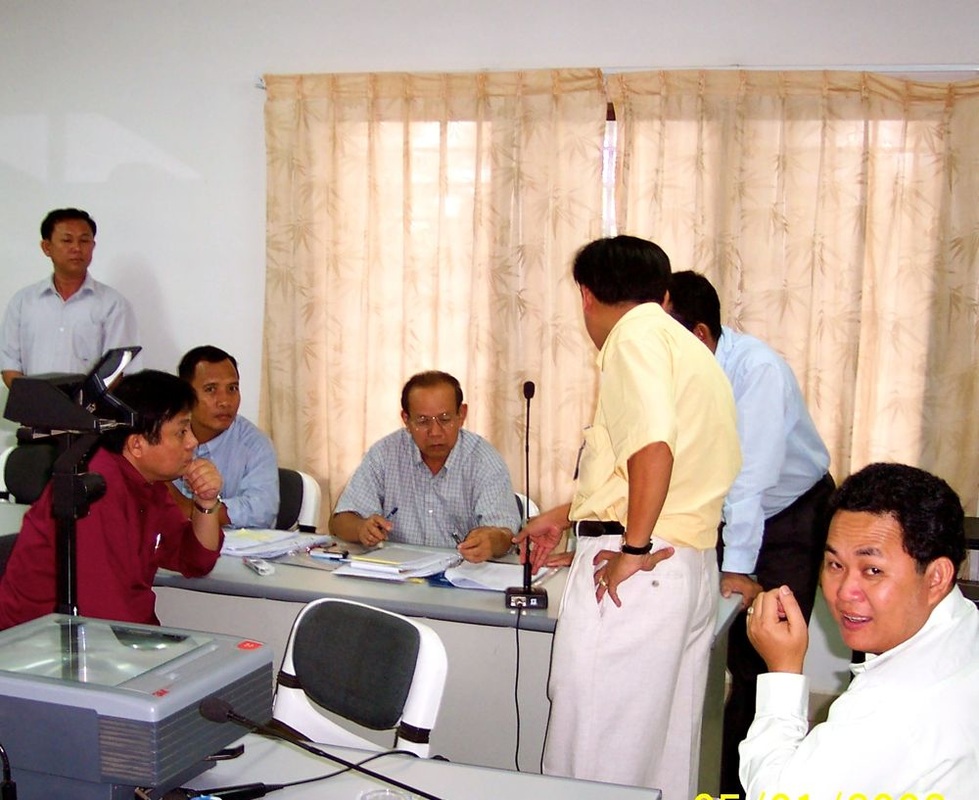7 Things Successful International Consultants Do
What makes a successful international development consultant? Is it bringing to another country leading edge tools and practices?
Is it changing the thinking of leaders and decision makers? Is it transporting the values of development to another culture? Is it teaching others to do things more effectively?
Or, is it simply bringing another point of view and other experiences to the table?
Is it changing the thinking of leaders and decision makers? Is it transporting the values of development to another culture? Is it teaching others to do things more effectively?
Or, is it simply bringing another point of view and other experiences to the table?
And why do some consultants succeed and others implode? I happened to witness once the arrival of one international consultant in a Ministry Office. All the staff were really happy to see him. When the others heard he was around, they all trooped in to greet him. There was so much joy.
One international Consultant who was also there remarked, "Look at that. We have been here for months and no one really bothered with us and here he comes, and as if the Messiah arrived". Why?
One international Consultant who was also there remarked, "Look at that. We have been here for months and no one really bothered with us and here he comes, and as if the Messiah arrived". Why?
Why? Here are some reasons why. Successful international consultants do the following:
1. Help their clients identify the next best thing in their own development process. Recognise that the local counterparts have their own ideas, that they have their own dreams for their country or for their organization and for their families.
Good consultants gather these ideas and hopes and find ways of using these to get to the desired outcomes. This way, they are always building support. I remember one international consultant who brought bleach into a hospital lab and scrubbed the surfaces when he saw the state they were in.
At first, he kept bringing the contamination on the lab surfaces to the attention of the authorities but after 6 weeks, nothing happened. He realized if he wanted action, he should do it himself. Perhaps bleach was not the best solution…but it was all he had.
That very action changed so many labs in the training colleges as well as local hospitals in that country. The faculty realized what a difference clean labs made to their tests and experiments. When the labs were cleaned, the students started to keep it that way and more work was done.Of all the interventions that consultant did, he was most proud of this one.
1. Help their clients identify the next best thing in their own development process. Recognise that the local counterparts have their own ideas, that they have their own dreams for their country or for their organization and for their families.
Good consultants gather these ideas and hopes and find ways of using these to get to the desired outcomes. This way, they are always building support. I remember one international consultant who brought bleach into a hospital lab and scrubbed the surfaces when he saw the state they were in.
At first, he kept bringing the contamination on the lab surfaces to the attention of the authorities but after 6 weeks, nothing happened. He realized if he wanted action, he should do it himself. Perhaps bleach was not the best solution…but it was all he had.
That very action changed so many labs in the training colleges as well as local hospitals in that country. The faculty realized what a difference clean labs made to their tests and experiments. When the labs were cleaned, the students started to keep it that way and more work was done.Of all the interventions that consultant did, he was most proud of this one.
2. Enable local counterparts to respond to their immediate concerns so they can look beyond what to them is urgent and see other development goals. The local decision makers are busy. The top person often makes all the decisions so everything is carted in. This will change in the future at different rates in different countries, but for now, this is the reality. So, successful consultants don't go in there for new discussions. This is NOT Charlie Rose!.
You present the ideas that require approval to those that advise the decision maker. He will have a trusted advisor on the staff. Spend time on this. Build up some trust. Once they really understand what the consultant is saying, and agree with it, they will explain to the boss in their own language before you go in. Some negotiation between you and the advisor will take place.
Once the agreement seems to be doable, take only 15 minutes at the most of the top person's time. Have your summary translated into the local language. Test out your ideas with the assistants so you refine them. No surprises.
You present the ideas that require approval to those that advise the decision maker. He will have a trusted advisor on the staff. Spend time on this. Build up some trust. Once they really understand what the consultant is saying, and agree with it, they will explain to the boss in their own language before you go in. Some negotiation between you and the advisor will take place.
Once the agreement seems to be doable, take only 15 minutes at the most of the top person's time. Have your summary translated into the local language. Test out your ideas with the assistants so you refine them. No surprises.
3. Understand that the organization you work with will implement what has been approved when they feel ready to do it. You can wait a long, long time so your work is to keep plugging it. Pushing too hard can make you an irritant.
Timing is everything. Work with their readiness. Be sensitive to timing. The decision makers have a hundred other concerns and priorities. Your number 1 priority may be their number 56!
Timing is everything. Work with their readiness. Be sensitive to timing. The decision makers have a hundred other concerns and priorities. Your number 1 priority may be their number 56!
4. The successful international consultant understands that she does not need to impress her colleagues with the elegant language of her papers. She is now writing for those who may know several languages and English may be number 3 and it is not perfectly understood. So, they make their papers simple, clear and easily translated by persons who don't really have in-depth knowledge of the nuances of the English language or the precise meaning of technical terms used. Simple Power Points in the local language if you are not speaking in it.
5. Those who succeed in international consulting understands that it is not often the leading edge ideas that are needed in many countries of assignment.
Often, the issue is much less where should we go? They know that…but how do we get there? Do your homework. Identify where the culture in the organisation is ready to move. Perhaps their priority is to move towards the goals stated in the project but possibly the organisational culture is not yet ready, so your job is to help the culture move a bit until they become more comfortable with the new ways.
The successful consultant emphasises problem solving, not brave new innovation. A big selling point is that you can do the try out of ideas with them, so when if it fails, you are the foreigner they can blame, the one who would take on the shame.
Failure is feared in many cultures so people are not encouraged to take risks. The key is to find a local working example of the change you want to implement. Don't talk about the piano. Let the staff you are advising play it.
Most great ideas are not implemented because of the fear of failure. If your counterparts can see the idea working in their own environment, even in a small way, the fear evaporates.
Often, the issue is much less where should we go? They know that…but how do we get there? Do your homework. Identify where the culture in the organisation is ready to move. Perhaps their priority is to move towards the goals stated in the project but possibly the organisational culture is not yet ready, so your job is to help the culture move a bit until they become more comfortable with the new ways.
The successful consultant emphasises problem solving, not brave new innovation. A big selling point is that you can do the try out of ideas with them, so when if it fails, you are the foreigner they can blame, the one who would take on the shame.
Failure is feared in many cultures so people are not encouraged to take risks. The key is to find a local working example of the change you want to implement. Don't talk about the piano. Let the staff you are advising play it.
Most great ideas are not implemented because of the fear of failure. If your counterparts can see the idea working in their own environment, even in a small way, the fear evaporates.
6. Work effectively with teams. Yes, usually in international projects, there are teams to plan and implement the outputs.
Teams come from different countries and backgrounds, each one with a specific assignment to complete but also to contribute to overall project goals. There is a deadline to meet as well adding to the pressure.
So, effective international consultants are clear, direct, communicate with the others and share what they know and resources they have discovered.
They help facilitate the completion of a project and most know that you cannot listen when your mouth is open.
7. Dig for resources you need. If there is no data given to you, find a way to collect it. Be ready to do whatever work is required, be it arranging the office so it is habitable for everybody or helping someone with a difficult letter.
If things were easy, YOU WOULD NOT BE THERE!
If things were easy, YOU WOULD NOT BE THERE!
Remember, your job is to build support for change, to enable the organization to take the next best step. Maybe they can take the leap from smoke signals to smart phones but most of the time, it is plodding to build confidence.
If you expect them to do things exactly the way you do it in your country, stay home. Remember, it took you years to get there, too. They are as anxious as you are to take the leap but step by step is far more achievable.
Check out these other global career articles:





